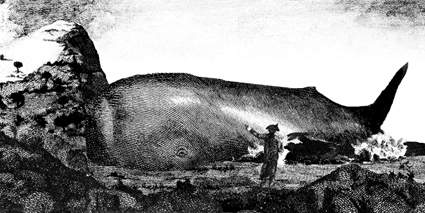 |
|
|||||
| According to the recommendations listed on Annex VII of the 11th Ordinary Meeting of the Contracting Parties of the Barcelona Convention and its Protocols of the Mediterranean Action Plan, UNEP (Malta, 27-30 October 1999), relating to the ulterior implementation of the Action Plan for Cetacean Conservation in the Mediterranean Sea and other initiatives, the co-ordination of the information of stranded cetaceans on the coast of the Mediterranean countries is required for a better knowledge of cetaceans and their eventual protection and conservation. |
|||||
 |
|||||
Cetacean
strandings, in addition to raising social awareness for these animals
and for marine biodiversity, represent an important tool for the
development of scientific programmes on cetacean conservation. The
occurrence of stranded dolphins and whales provides an invaluable
opportunity to investigate mortality causes and the impact of human
interactions, to assess the importance of potential threats (by
analysis of accumulated pollutants and toxins), and to gain insights
on aspects of their population biology: reproduction, development,
feeding habits, etc. In the last years, thanks to the development
of molecular techniques, cetacean strandings represent also a chance
for collecting small tissue samples for population genetic studies.
These data altogether can be used to determine the health status
and to identify conservation problems of cetacean populations and
reveal unusual mass mortality episodes (Geraci and Lounsbury, 1993). |
|||||
| In countries where the concern for the protection of cetaceans is higher, stranding networks have been developed over the last decades. The establishment of stranding networks and the submission of data to a centralised database facilitates the collection and dissemination of information. Besides, it affords to monitor health trends in marine mammal populations by relating health data with available information on physical, chemical, environmental, and biological parameters, and co-ordinate effective responses to unusual mortality events (Becker et al. 1994). Also working groups dealing with marine mammal unusual mortality events have been established, in some countries, to delineate criteria for determining when such an event is underway and to provide guidance to respond to them (Wilkinson 1996). In addition, national marine mammals tissue banks have been created in connection with national stranding networks. Such banks have the purpose of providing samples for future retrospective analyses, for new analyses of interest and for future analyses using improved analytical techniques. Marine Mammal Tissue Banks constitute a resource of samples that have been collected and stored in a systematic and well-documented manner to compare results over time and to identify whether environmental trends exist (Becker et al. 1999) |
 |
||||
Thus, the establishment of standards to keep the information and samples from cetacean strandings in the Mediterranean waters becomes relevant. In this context, it is necessary to compile all details of cetacean strandings, including an inventory of the samples taken, in a single database maintained by a Mediterranean Database of Cetacean Strandings (MEDACES). In November 2001, the 12th Ordinary Meeting of the Contracting Parties to the Convention for the Protection of the Mediterranean Sea against Pollution and its Protocols, within the “Biological Diversity and Specially Protected Areas” section, recommended for implementing the Action Plan for the Conservation of Cetaceans in the Mediterranean Sea, to approve the offer by Spain with regard to the establishment in Valencia of a Mediterranean database on cetacean strandings (MEDACES). The Regional Activity Centre for Specially Protected Areas (RAC/SPA) is the depositary for the database, whose management is entrusted to the University of Valencia’s Cavanilles Biodiversity Institute (ICBIBE), with the financial support of the Spanish Ministry of the Environment, and Rural and Marine Affairs (MMA). The ICBIBE provides the human and material resources necessary to implement MEDACES. This database strictly adheres to a deontological code (see About MEDACES/Deontological code). The Mediterranean Database of Cetacean Strandings has been expanded to cover regions adjacent to the Mediterranean, as the Black Sea and the contiguous Atlantic waters as defined in the Agreement on the Conservation of Cetaceans of the Black Sea, Mediterranean Sea and contiguous Atlantic area (ACCOBAMS).
|
|||||
 |
|||||